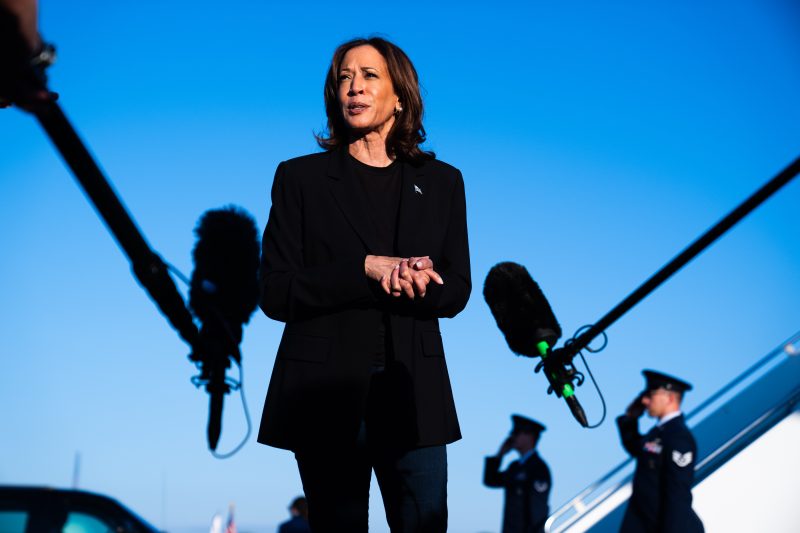In the recent political debates surrounding women’s issues, Vice President Kamala Harris took a stand against former President Donald Trump’s remarks, asserting that he is a protector of women. Harris dismissed Trump’s claims, pointing to his track record and statements that she believes are contradictory to the notion of being a women’s advocate. This exchange highlights the contentious nature of gender politics in the United States and the ongoing debate on who truly represents and defends the rights of women.
Harris, a trailblazer in American politics as the first female, first African American, and first Asian American Vice President, has been a vocal advocate for women’s equality and empowerment. Throughout her career, she has championed policies and legislation aimed at addressing issues such as gender pay gap, reproductive rights, and domestic violence. Her commitment to advancing women’s rights has been a central pillar of her political agenda.
On the other hand, Trump’s relationship with women has been under scrutiny, with accusations of misconduct and derogatory statements towards women surfacing during his presidency and beyond. His infamous comments captured on tape during the 2016 election, where he boasted about sexually assaulting women, have significantly tarnished his image as a defender of women’s rights. Critics argue that his policies and actions, such as his administration’s rollbacks on reproductive health services and appointments of conservative judges, have had negative consequences for women’s rights.
The clash between Harris and Trump reflects broader ideological divisions in American society regarding gender equality and women’s rights. While some view Trump as a champion of traditional values and advocate for protecting women, others see his policies and behavior as regressive and harmful to women’s progress. Conversely, Harris represents a vision of feminism that promotes inclusivity, diversity, and empowerment for all women, regardless of their background or beliefs.
In the current political landscape, discussions around women’s rights have become increasingly polarized, with partisanship shaping attitudes and policies towards gender equality. The debate over who truly stands up for women’s interests reflects deeper societal anxieties and power struggles over gender roles and expectations. As the United States continues to grapple with these complex issues, the voices of women in leadership, like Vice President Kamala Harris, play a crucial role in shaping the future of gender politics and women’s rights in the country.



